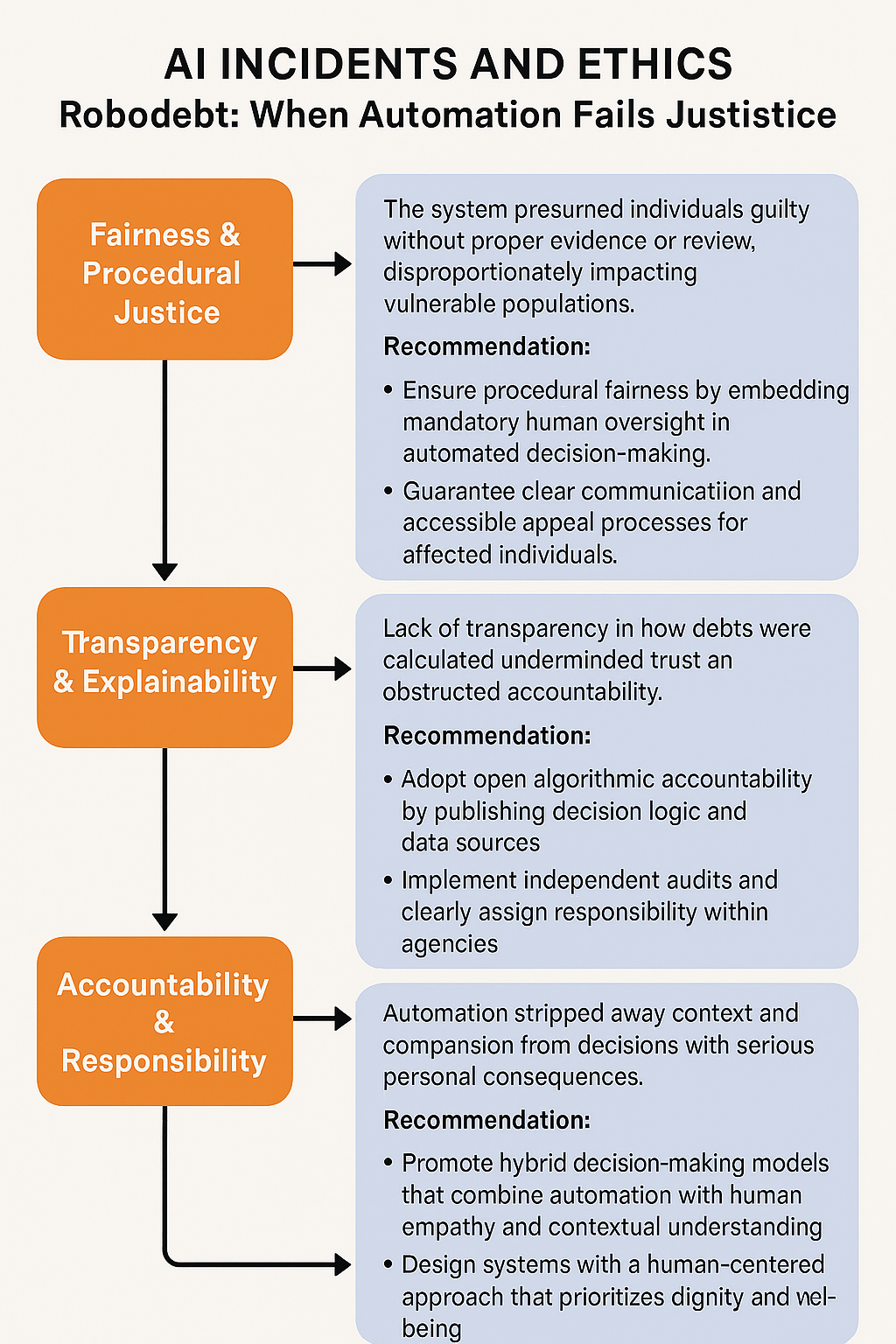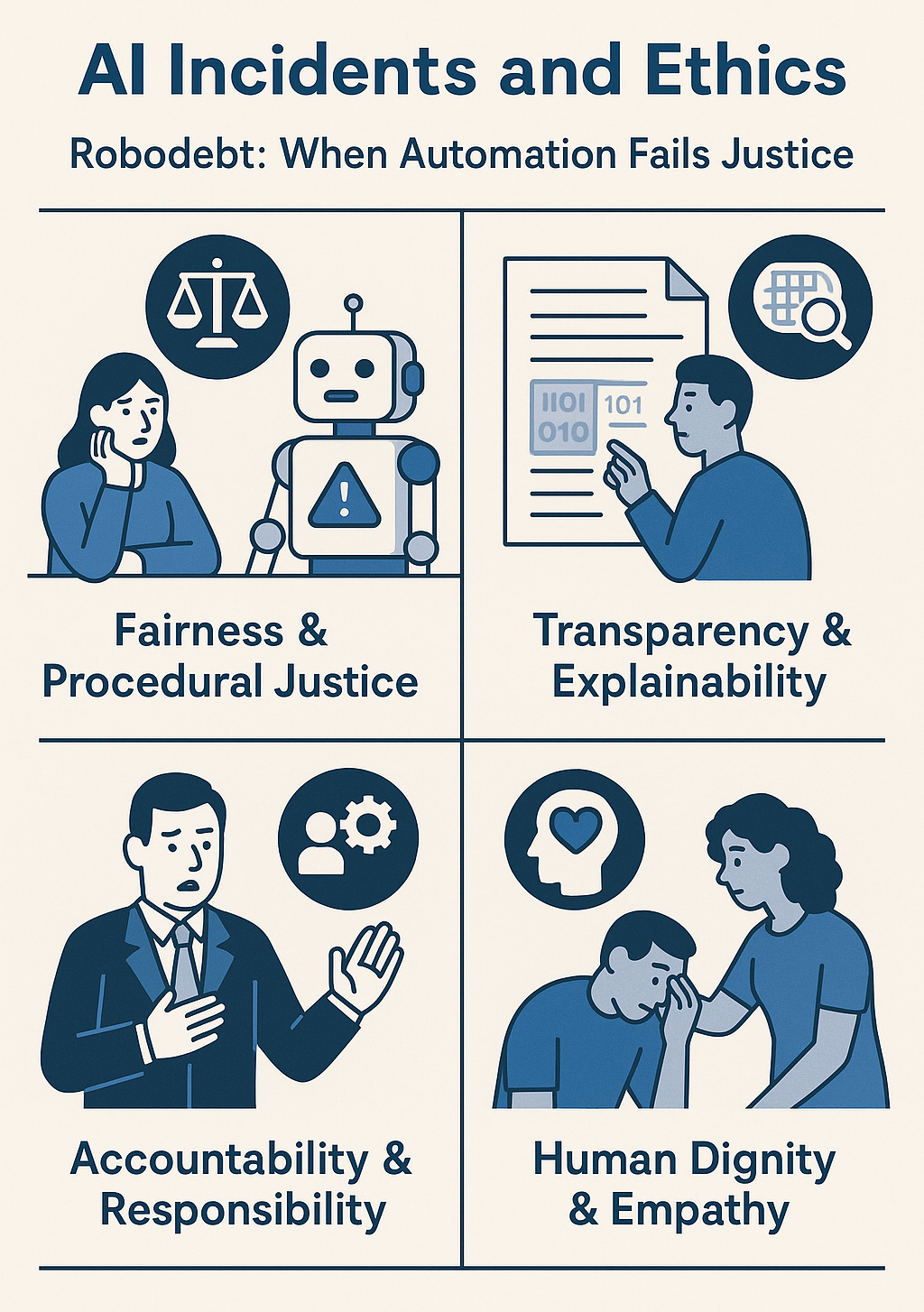AI Incidents and commercial AI


Values:
- Exposed ethical risks in AI-driven public systems: lack of fairness, transparency, and accountability and given safeguards including human oversight, procedural justice, and algorithmic transparency.
-
Advocated for hybrid decision-making models that preserve empathy and contextual judgment.
-
Emphasized the need for responsible, human-centered AI adoption that prioritizes dignity and ethical governance.
Newsletter titled- “From Code to Commerce- How AI reshaping industries”
Link for the Newsletter:https://www.canva.com/design/D...
Overview
- Focus: The transformative impact of AI on three major industries — Banking, Healthcare, and Logistics.
- Objective: Share latest advancements, practical applications, and expert insights in AI across sectors.
- Tools discussed: Extensively in Hinge Health
Summary:
-AI merges automation and intelligence to revolutionize:
- Compliance and speed in finance.
- Scalable, personalized care in health.
- Precision and efficiency in logistics.
-This marks a pivotal shift toward smarter, safer, and more responsive systems.
Tools Used:
-FICO, IBM Watsonx
-Path AI ,Hinge Health
-Locus ,Blue Yonder
- Canva to create Newsletter
- Chat GPT to analyze the AI incidents and its impact
-Gemini AI to include recent advancements in AI and future upgrades on the same
Reflection:
The Robodebt scandal serves as a stark reminder of the ethical imperatives that must govern AI implementation, especially in public services. Its failure highlights how automation without human oversight can erode justice, transparency, and empathy—core pillars of ethical governance. While AI offers immense potential across industries such as banking, healthcare, and logistics, as explored in the newsletter, its integration must be coupled with human-centered design, accountability, and ethical training. The contrast between innovation and the misuse of technology underscores a vital lesson: progress must not compromise human dignity or procedural fairness.
References:
Eubanks, V. (2018). Automating Inequality: How High-Tech Tools Profile, Police, and Punish the Poor. St. Martin's Press.
Royal Commission into the Robodebt Scheme. (2023). Final Report. Australian Government. https://www.royalcommission.gov.au/robodebt
O'Neil, C. (2016). Weapons of Math Destruction: How Big Data Increases Inequality and Threatens Democracy. Crown Publishing Group.
Jobin, A., Ienca, M., & Vayena, E. (2019). The global landscape of AI ethics guidelines. Nature Machine Intelligence, 1(9), 389–399. https://doi.org/10.1038/s42256-019-0088-2
